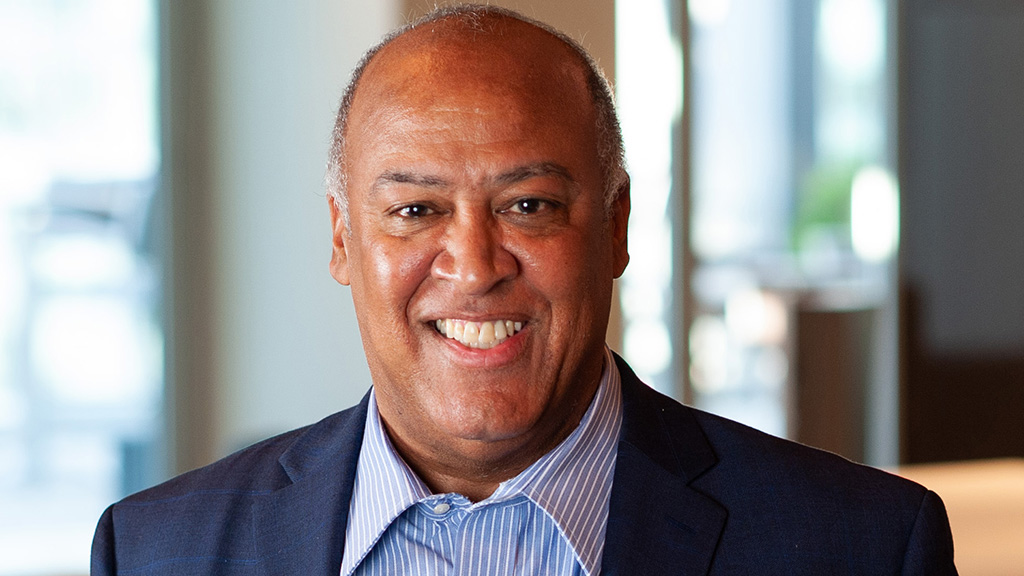MFHA founder reflects on a career putting DEI first
Gerry Fernandez prepares to leave the Multicultural Foodservice & Hospitality Alliance
- December 12, 2023 |
-
 Elizabeth Crumbly
Elizabeth Crumbly

A call with Gerry Fernandez may spark an extended introduction. He’ll share a little about his family and ask where the caller hails from. But there’s a sincerity to this small talk: Fernandez is open about his belief that curiosity and an ability to hold space for others has allowed him to develop a strong network for the Multicultural Foodservice & Hospitality Alliance (MFHA) during his 27-year tenure there, which will end at the close of this year.
Jail or cemetery?
One of six children, Fernandez lost his father at age 11. As a youth, his future looked bleak to some.
“I was a bit of a knucklehead. People thought I was going to go to jail or the cemetery,” Fernandez told CEO Update.
Instead, he landed among the first graduating classes of Johnson & Wales University in Rhode Island, which gave him access to a prestigious culinary program. Fernandez’s ensuing real-life experience included waiting tables on Martha’s Vineyard and a tour cooking for several organizations. He ended up at General Mills in the early 1990s where he began a career-long discovery of issues related to diversity, equity and inclusion (DEI).
The birth of the MFHA
He found General Mills was losing talented female employees of color who didn’t feel they had coaching or opportunities to advance. He attended an event for the Women’s Foodservice Forum and came away with an idea.
“I said, ‘If there’s a need for a group that promotes women, what about people like me —people of color?’” he recalled.
With the support of higher-ups at General Mills, he gathered representatives from 17 companies in Chicago in September 1996, and MFHA was born “as an educational nonprofit to help create opportunities for people of color both in the food service and hospitality industry.”
General Mills essentially funded the association’s beginning, paying Fernandez his regular salary and giving him an office and an administrative employee, along with media training and some operating capital. Fernandez began partnerships with companies like Coca-Cola and McDonald’s, and some of those relationships still stand today, he said.
Being corporate-oriented from the start, he said, helped MFHA.
“It was corporate born for corporate benefit,” he said. “We are helping companies get better with diversity. By understanding how to engage people from different ethnic, racial, cultural backgrounds, we can improve the customer service. We can improve the brand image. We can develop career opportunities. . . . It was always about, diversity was good for the bottom line.”
The organization held the first of its yearly conferences in 1998 in Atlanta. It was a time, Fernandez recalled, when MFHA hosted “the best and brightest” experts on matters of diversity and corporate culture at upscale hotels. Brand memberships and participation skyrocketed with additions like Kraft, Pillsbury, Darden Restaurants, and American Express, and awareness of the conference and MFHA’s mission grew. Fernandez left General Mills and moved operations to Johnson & Wales in 2001 with a staff of about a dozen, only six of whom were full-time.
“Once you start getting these brands, other people want to be there,” Fernandez said. “And they know that those brands wouldn’t be sponsoring you and supporting your events if you weren’t putting on good content.”
Mistakes and strategy
A willingness to make mistakes and cultivate relationships has characterized Fernandez’s approach to his own professional growth.
“I have a personality. I’m not afraid to make mistakes. I’m very comfortable around people in power,” he said.
He remembers a time at General Mills when he “strategically volunteered” with community organizations so he could meet leaders like the company’s president of snacks, who was also a company board member. That relationship, he said, got him invites to other events.
There was a learning curve, but nobody told him he couldn’t deploy these strategies to advance, he said.
“I learned to be a leader from the middle. I’m a middle child. I come from a lower middle-class family, we had no money. I was an OK student in school until I got to culinary school,” he said. “And I didn’t wait for anybody to tell me that I could lead. I started doing things.”
Challenges and partnerships
Fernandez and MFHA have faced their share of challenges. When the 2008 recession hit, the organization lost 60% of its financial support from companies, he said. Diversity efforts had also become more widespread, so MFHA’s services weren’t as much in demand. The association dialed back to three full-time employees plus regular consultants.
Around this time, the association also replaced its annual conference with regional events. It partnered with the National Restaurant Association six years ago, and Fernandez said that decision has been a “match made in heaven.” It netted MFHA relationships with all 50 state restaurant associations and the marketing, communications and sponsorship development help that it was missing.
Now, Fernandez said, MFHA is back to five full-time employees with consultants contributing regularly.
‘Take your career anywhere’
As his exit date approaches, Fernandez is looking to spend a year or so working with a successor — likely one from a younger generation, he said, who can take over the relationships he’s built.
After a career growing DEI awareness, he said he sees it as something companies should continually discuss in an authentic manner.
“We should never stop talking about DEI,” he said. “It always should be one of the key metrics for business.”
And this self-described “kid from the middle” is thinking about writing a book about what he’s learned.
“Most of the people are like me,” he said. “They’re little, average, everyday human beings looking for a way to add value, and if you can do that and find a way to add value, you can take your career anywhere you want to go.”
